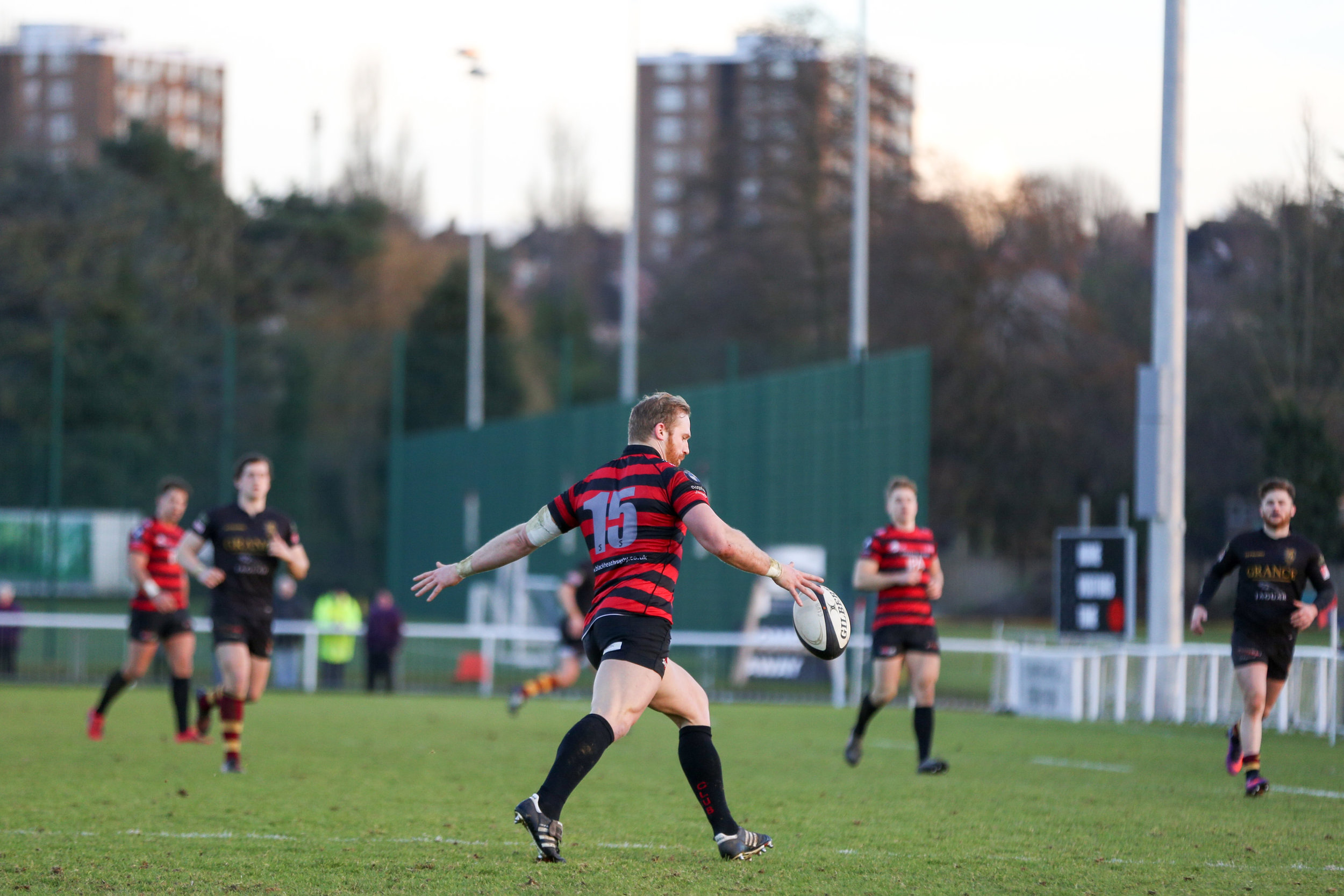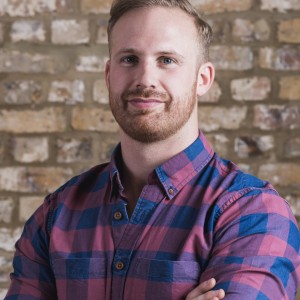Geoff Griffiths
Geoff and I played together for one season at Plymouth Albion, my first year as a full time professional. Geoff was and has been until recently, a big, powerful utility back with an all-round set of skills and became a good mate of mine during our time at the Brickfields.
Geoff moved on to Esher and then to Blackheath where he’s overcome injury to make a final comeback appearance for them to finish this season having played over 100 games for them already. Injury has always been cruel to Geoff and despite appearing in good condition, he could well be constructed with chocolate.
Now he runs a 50-strong digital agency in Shoreditch, helping to build other businesses by leveraging the power of the internet.
How did you end your career?
In terms of my professional career I had to come to terms with the fact I probably wasn’t going to make it and set about making sure I moved to something rather than fall out of the game. There was a contract on the table for me in Plymouth but I made the decision to move to Esher and play in the Championship part-time, while looking to get started with a longer-term and more lucrative career in London.
I played my last game of “proper” rugby a couple of weeks ago for Blackheath having made a successful comeback from a big shoulder operation last May. Going out “on my feet” was a huge deal for me having had so many injuries, and successfully rehabbing my shoulder to play in the last game of the season was fantastic. Going over for a try in front of family, friends and a set of supporters who had made the club feel like home for the past 7 years was something I will never forget.
How did you prepare for retirement while you were playing?
I found full-time rugby pretty tedious at times and during a few spells of injury I went out of my way to make sure I was learning and developing skills with the free time I had. I was writing for the BBC website which provided a nice outlet, and this naturally evolved firstly to digital in general and then again into digital marketing.
What did you do immediately for work?
I entered the world of digital marketing while continuing to play for Esher RFC. Esher hero Colm Hannon (who runs the Rugby Business Network) sorted me out with a job upon moving to London.
The combination of both a rugby salary and a “proper job” salary meant I was able to live in London comfortably and better plan out the increase of the latter to combat the inevitable decrease of the former. It bought me time and allowed me to really start at the bottom without the residual stress of money.
How did it go?
It went really well. My sporting background meant I offered something different to other candidates and employees. From a competitive mindset and diligent work-rate to the professional doors rugby can open, I definitely stood out a little and had the confidence to express opinions, navigate politics and ultimately back myself to do what I said I’d do.
What support did you receive with your transition?
None from any kind of official body. There is currently a lot of momentum on this front in the Premiership but in my opinion the Championship is pretty neglected. This is a travesty given the state of the contracts and packages in place.
If a Championship player on a meagre salary suffers a career-ending injury for example, they are going to have to move very quickly indeed to find new employment, most likely in something completely alien to what they are used to. This is going to cause real problems and removes the ability to actively move to something.
Of course, it will be the same in a way for a Prem player but they will at least have a bit more of a financial buffer alongside the greater support already in place.
Would you say that you have transitioned?
In real terms I am only a couple of weeks into a “transition”. That said, I think I am already there in so much as I am at peace with my career and have a very clear direction outside of the game.
What are you doing now?
I am the Managing Director of Builtvisible – an award-winning digital marketing agency based in London.
Is this something you see yourself doing long term?
Yes. I am hugely proud of the agency and the people in it. It is a complete joy to go to work every day and there is a real sense we are building something very special indeed. Growing a business has many parallels with rugby in terms of buying in to a common cause, developing a culture, winning and losing together etc etc.
In a broader sense, I see management in general as my longer term calling but Builtvisible is everything for the foreseeable future.
What does it provide for you apart from money?
I think there are two main categories to this – the sense of team and the scratching of the competitive itch.
Running a growing company gives myself, the team at Builtvisible and the clients we work for the opportunity to get better every day, constant challenge in a fast-paced environment and a sense of belonging in terms of a group of people pulling together to achieve common goals. This team aspect is by far the most satisfying part as it happens in real-time, every day.
At the same time, there is an ever-present competitive element and a clear feedback mechanism in the numbers I help produce on a monthly, quarterly and annual basis. These have obvious similarities to the results-orientated nature of professional sport and provide a way of keeping score that can of course, always be better.
Are you still involved in rugby in any capacity?
Having only just hung up the boots I don’t currently have an appetite for coaching/involvement in the game moving forward but it isn’t a never-say-never scenario.
The management angle in sport is certainly very interesting but a clean break will be healthy in the short term.
What has sport given you?
On a personal level life-long friendships, unbelievable memories and an injury list that has kept Mr. Bupa very happy indeed. Basically, enough to turn me in to a blazer-sporting rugby nause full of tedious clubhouse stories for the next 50 years.
From a business standpoint, rugby gives you leadership in spades.
I put a lot of my management approach down to witnessing time and again how not to do it within the rugby environment and forming my own opinions on what good would have looked like in the same scenarios I encountered again and again.
Alongside this, an incredibly useful cocktail of self-confidence and honesty with myself means I always back myself but am completely accountable with it.
What’s your best memory from your career?
Winning the Amsterdam 7s multiple times with Samurai RFC would be up there in terms of on-field memories, and my final game for Blackheath was truly special.
That said, more important to me as I leave my career behind are all the things no one outside of rugby has the fortune of understanding.
The incredible characters/lifelong friends you meet, loose away trips and ridiculous changing room pranks are the things I reminisce about regularly with other players.
Over the last couple of years, I have really started to savour moments like this in real time which has truly been a privilege.
If you had one piece of advice for retiring athletes, what would it be?
It is easy to say “prepare for retirement” but this is a pretty nebulous idea. I think actively moving to something is a far better way of framing this advice as it serves the athlete mindset well.
Thinking of transitioning in this way forces you to break the required steps down from working to find what it is you want to transition in to, and then working out the steps required to achieve it.
Follow Geoff on:

